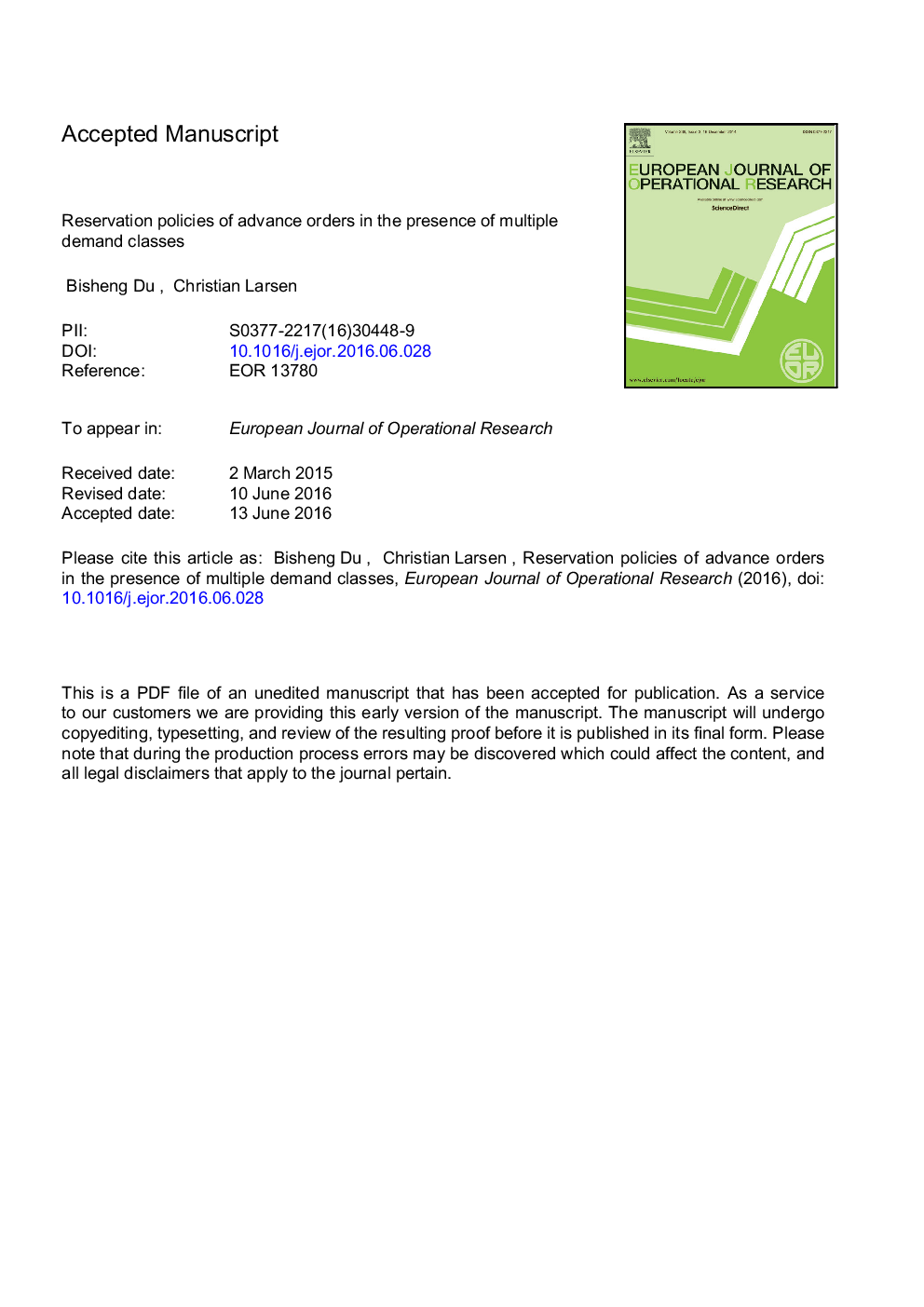| کد مقاله | کد نشریه | سال انتشار | مقاله انگلیسی | نسخه تمام متن |
|---|---|---|---|---|
| 4960218 | 1445968 | 2017 | 23 صفحه PDF | دانلود رایگان |
عنوان انگلیسی مقاله ISI
Reservation policies of advance orders in the presence of multiple demand classes
ترجمه فارسی عنوان
سیاست های رزرو از پیش سفارشات در حضور کلاس تقاضای چندگانه
دانلود مقاله + سفارش ترجمه
دانلود مقاله ISI انگلیسی
رایگان برای ایرانیان
کلمات کلیدی
فهرست، اطلاعات تقاضای پیشرو، تقاضای ناهمگن،
موضوعات مرتبط
مهندسی و علوم پایه
مهندسی کامپیوتر
علوم کامپیوتر (عمومی)
چکیده انگلیسی
We consider an inventory system where customers provide advance order information. Specifically each customer order contains two attributes: a request date when the order is received and a due date specifying when the customer wants the order delivered. We assume M different customer classes whose demands are generated by independent Poisson processes. All customers in the same class have the same constant demand lead-time (the difference between the due date and the request date), and all demand lead-times are less than the replenishment lead-time of the inventory system. The inventory system is operated as a base-stock system where a replenishment order is issued instantaneously upon the receipt of a customer order. A key characteristic is that customers with a long demand lead-time can be overtaken by customers with a shorter demand lead-time. Therefore, a potentially important issue is: should items in stock be reserved for specific order requests, and if so, when? Here it is understood that after the reservation, the item cannot be used to fill other customer requests. We describe a general reservation policy, meaning that to each customer class a given reservation delay arises between receipt of an order and the reservation. Assuming that the revenue of an order depends on the demand lead-time, we propose a profit optimization model where the expected profit is the difference between the expected revenue and the expected inventory holding costs. We derive the profit function for the general reservation policy and find the optimal base stock level and the reservation policy by exhaustive search. In our numerical results we find cases where, by using the general reservation policy, there are improvements by more than 5% compared to either making no reservations at all, or making a complete reservation (that is, reservation immediately upon receipt) of items to incoming orders. Our numerical results also show that instead of using a general reservation policy, one can, without much loss of optimality, resort to a simpler reservation policy, denoted Backward Delay, BD.
ناشر
Database: Elsevier - ScienceDirect (ساینس دایرکت)
Journal: European Journal of Operational Research - Volume 256, Issue 2, 16 January 2017, Pages 430-438
Journal: European Journal of Operational Research - Volume 256, Issue 2, 16 January 2017, Pages 430-438
نویسندگان
Bisheng Du, Christian Larsen,
